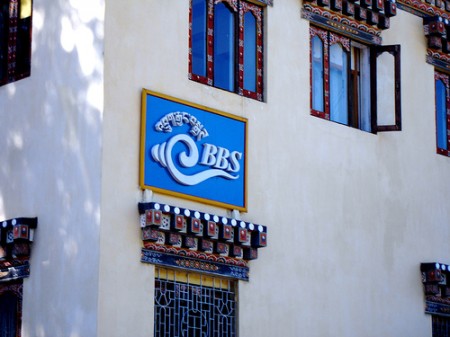Privatisation vs nationalisation
Privatisation and nationalisation have become a complex subjects for the political parties and politicians. Both the parties, so far legally registered, have no clear vision what they choose to – nationalisation or privatisation. Even the government has no policy whether they promote nationalisation or privatisation.
In one of the session of the ongoing parliamentary session, the upper house National Council members proposed privatisation of state owned media house Bhutan Broadcasting Service Corporation (BBSC).
It might not have any relations between these two actions but national radio and TV privatisation and postponing of issuing TV licenses for private companies have come together. Concurrently, the NC members are mulling over nationalisation of the mining businesses in Samchi district saying private companies have turned deaf ear to the environmental preservation.
Parliamentarians see possibility of government earning from the mining business, which can then be diverted to more social services.

While, there are no symptoms of any possibilities of privatisation, steps are already taken for nationalisation. Few companies will soon come to the government portfolio. These include DHI Infra, Dungsam Cement Corporation, Thimphu Tech Park, Dungsuam Polymers and National Housing Development Corporation.
In them, the government will hold total value of equity amounting to Nu 45.2bn.
Of late, there have been repeated debates in the country over environmental degradation in south-western Bhutan primarily caused by increased mining activities carried out by Indian and Bhutanese companies. However, there are less talk about environmental degradation and encroachment of wildlife habitation while government decided to go ahead to construct a highway through a wildlife conservation park.
Going through the government reports of less than expected income from the government corporations, privatisation proposals are more or less rationale. In many corporations government has been providing so much subsidy while in others are overstaffed, thus decreasing the profits.
The fall in the profitability of the state corporations is attributed to decreased power generation and increase in overhead cost due to salary revision, new recruitments, regulation on timber prices, rising cost of raw materials and market competition.
The companies generated a total dividend and tax of Nu 7.64bn last year compared to Nu 7.8bn the year before.
The state owned corporations and government-linked companies constitute 44 per cent of the total domestic revenue and about 10 per cent of the GDP.
It is not sure if private TV licensing was delayed to lookout the possibility of privatising BBS. The MPs are of the opinion that BBS has added so much of financial burden to the government. With the launch of BBS 2, the financial burden has increased since the corporation earns less than 25 percent of its total expenses.
Privatisation motions in the country are instigated by Indians who advocate that Bhutanese government should focus on social service and let the private sector do businesses. This encouragement is derived from the massive privatisation initiated in 1990 by current Prime Minister of India Man Mohan Singh, who was then Finance Minister.